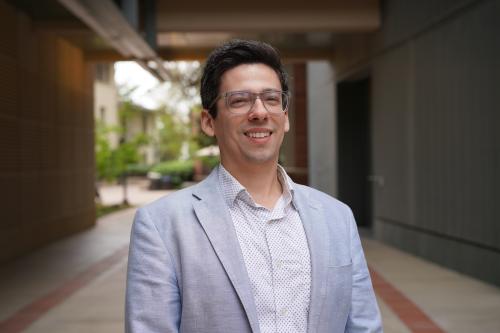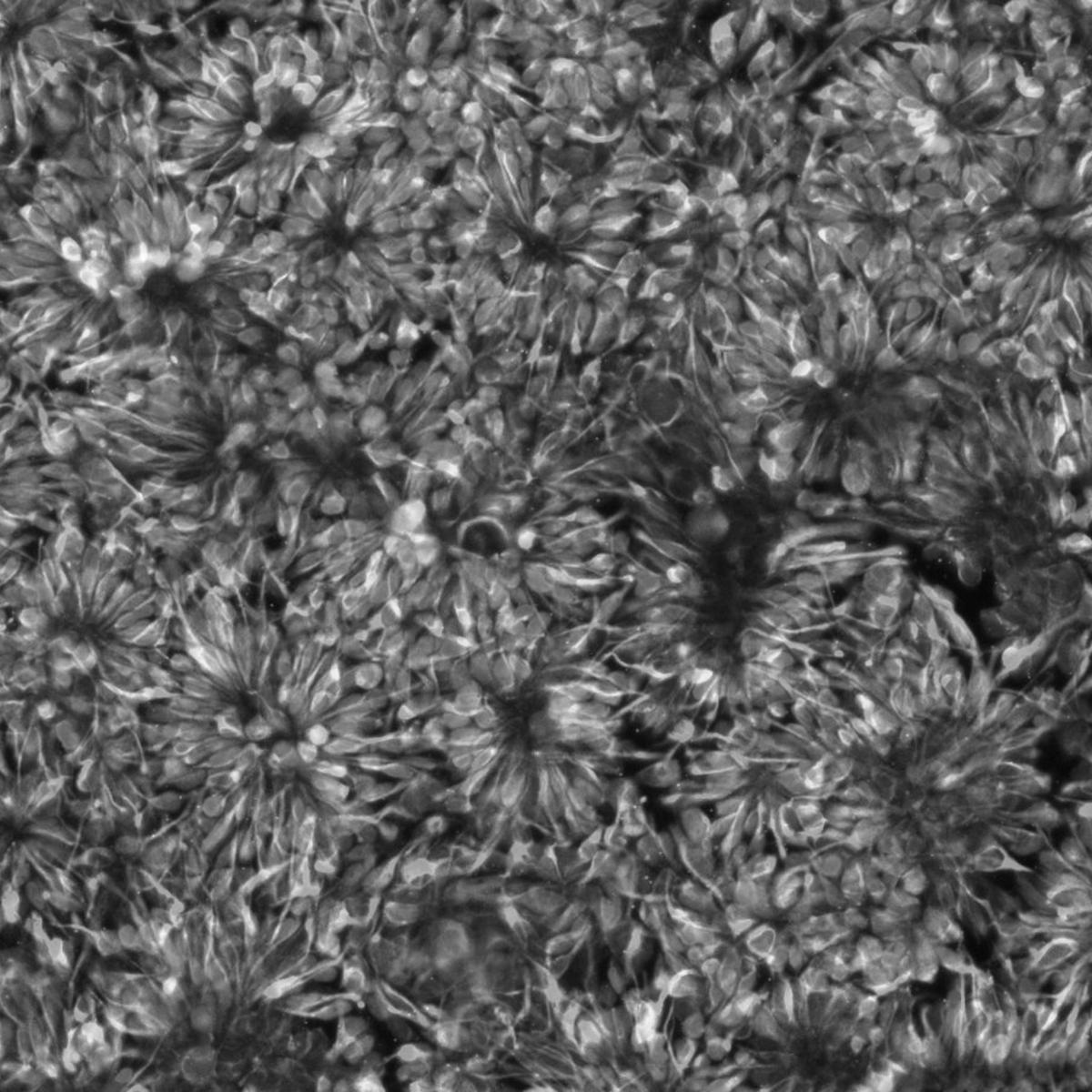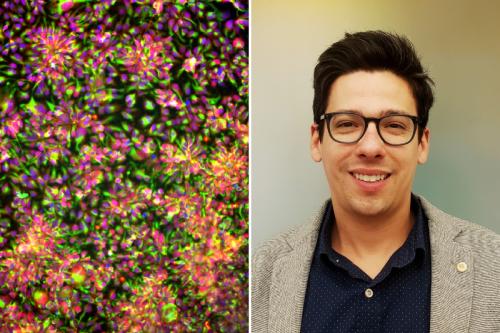
Michael F. Wells, Ph.D.
- Assistant Professor, Human Genetics

Michael F. Wells, Ph.D., uses villages of human stem cell-derived neural cells to investigate how variants in the human genome influence neurodevelopmental processes. He is particularly interested in identifying the mechanisms underlying neurodevelopmental and psychiatric conditions like autism, intellectual disability and schizophrenia.
Wells has developed several technologies that have enabled high-throughput screens in stem cell-derived models of the developing human brain and accelerated gene function discovery.
Notably, Wells pioneered the “cell village” experimental platform that captures genetic, molecular and cellular phenotypic variation in a single-cell culture environment. This system allows researchers to rapidly and simultaneously characterize the molecular and cellular traits of brain cells derived from dozens of patients and then use this data to elucidate the mechanisms underlying disease. Further, this approach minimizes the technical variation that often plagues multi-line comparative investigations and cuts down on the financial costs of culturing hundreds of cell lines independently.
The cell village tool could transform the study of complex brain disorders and the life sciences in general. Wells is further refining the village approach and is actively deploying it to better understand neurodevelopmental disorders of genetic and environmental origin.
Research Projects
- Developing methods to design and analyze “cell villages,” as well as new village-based cellular assays
- Identifying the genetic and molecular mechanisms underlying 16p11.2 microdeletion syndrome, in which a small piece of chromosome 16 in the human genome is deleted, causing various developmental and health challenges
- Pinpointing nodes of biological convergence across many autism genetic risk factors
- Detecting the cell intrinsic factors contributing to lead neurotoxicity susceptibility
-
Post-doctoral Fellowship
- Neuroscience, Broad Institute and Harvard University, 2021
Degree
- Ph.D., Neurobiology, Duke University, 2015
-

